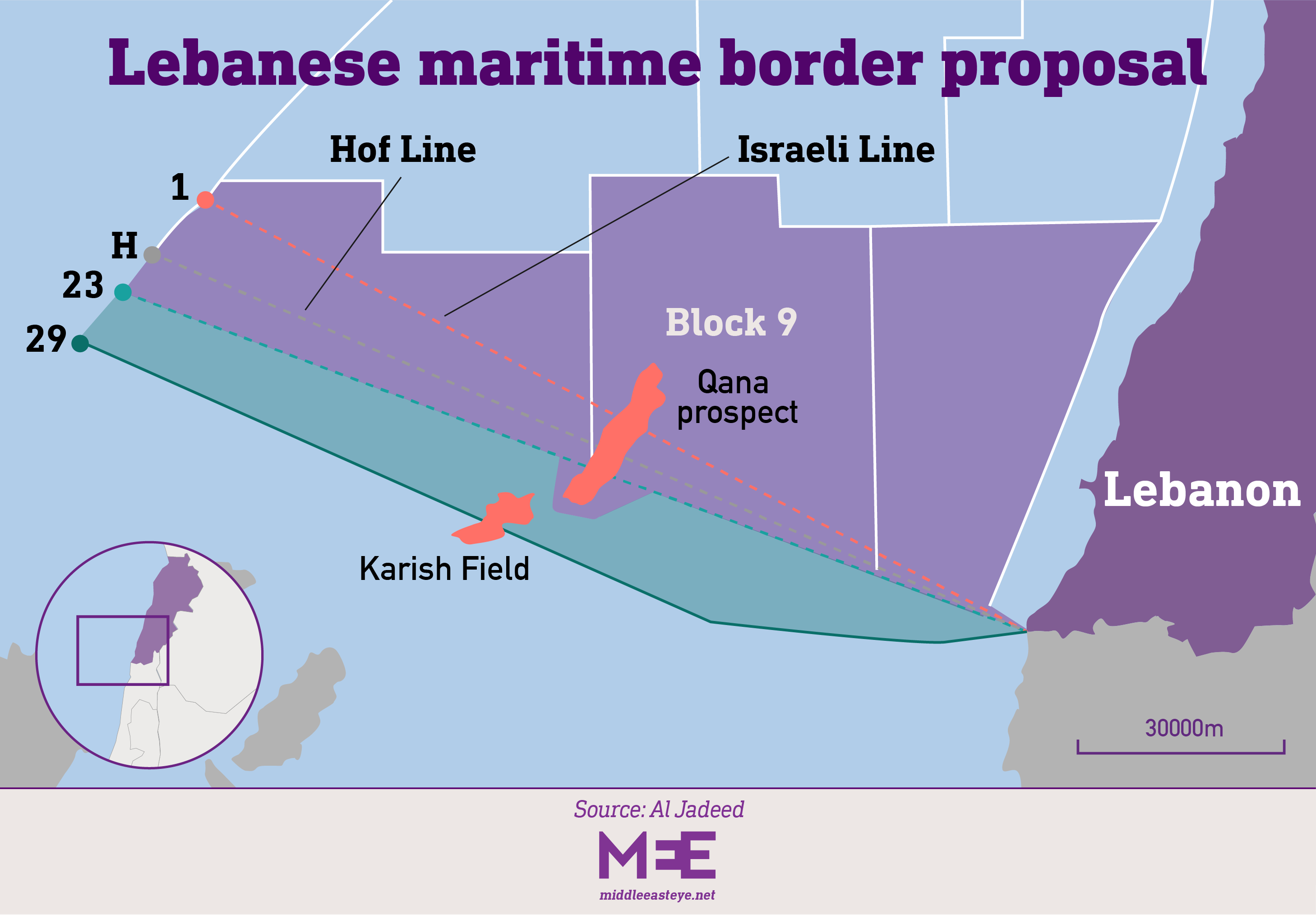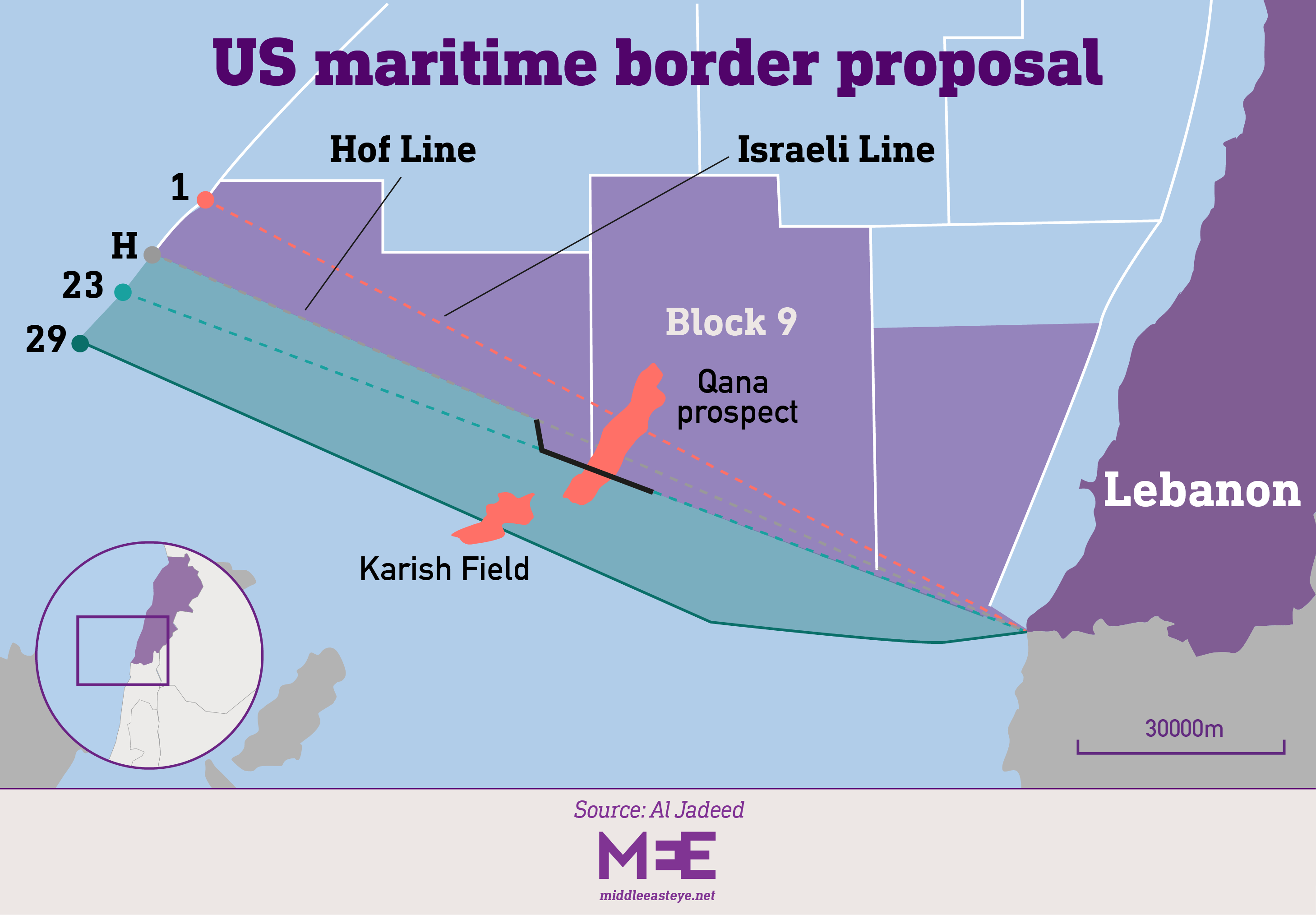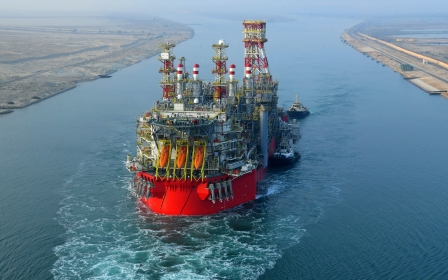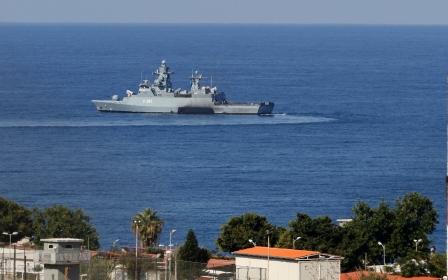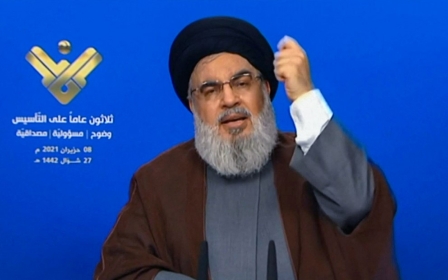Lebanon and US envoy swap proposals to solve maritime dispute with Israel
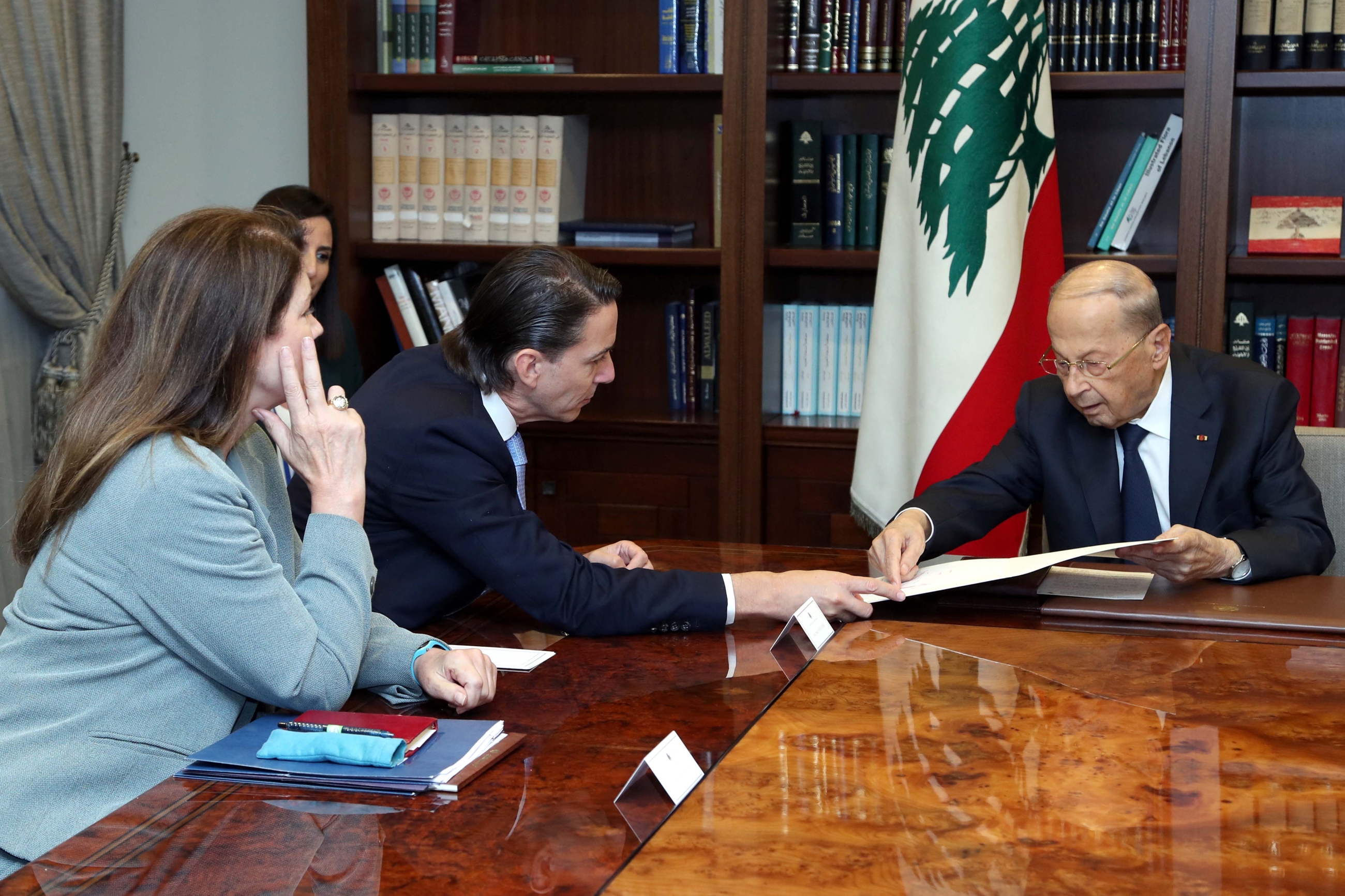
Lebanon and United States energy envoy Amos Hochstein swapped counter proposals over disputed maritime borders with Israel on Tuesday, according to Lebanese officials.
Lebanese President Michel Aoun met with Hochstein, who landed in Beirut on Monday at the invitation of the Lebanese government following its objection to the arrival of the Energean Power vessel to disputed waters to develop the Karish gas field for Israel on 5 June.
Indirect talks between Lebanon and Israel stalled last year after Beirut demanded that the boundary that separates the fields, known as Line 23, be pushed further south to Line 29, adding around 1,400 square kilometres to its claim, including part of the Karish field, which Israel is also claiming.
Washington considers Line 29 a "non-starter" according to sources speaking to Reuters.
New MEE newsletter: Jerusalem Dispatch
Sign up to get the latest insights and analysis on Israel-Palestine, alongside Turkey Unpacked and other MEE newsletters
Meanwhile, Israel claims that its maritime border starts at Line 1, giving it the right to operate in the Karish gas field.
Lebanese officials told Reuters that Lebanon has expressed readiness to offer a concession in its dispute with Israel by considering Line 23, instead of Line 29, as its official maritime border but with the addition of 300 sq km that would include the Qana field, but not Karish.
Hochstein's proposal suggests an “S-shaped” maritime borderline, composed of the Hof Line - a line proposed by former US mediator Frederic Hof in 2011 - and half of Line 23. According to the proposal, the Qana field would be shared by the two parties, while Israel can claim Karish.
Lebanon did not officially agree to the proposal.
A source with knowledge of the meetings between Lebanon and Hochstein said that Aoun has requested that its proposal be the standard used in future negotiations and that the US-mediated talks resume as soon as possible. Lebanon has also demanded that Israel ceases all operations in Karish until the conclusion of the negotiations.
"The Lebanese side brought up the matter of the Energean power vessel and demanded that it freezes its work in the Karish field to avoid jeopardising the stability of any upcoming negotiations," the source said.
In response, the source added, Hochstein pointed out that the vessel is located two miles south of Line 29 and that it will not change its position.
Lebanon has also requested the green light from the US to begin drilling in the area north of Line 23.
Lebanese MP Mark Daou, who visited Aoun on Monday as part of a group of independent lawmakers, said the president said he "cannot insist on Line 29" as a starting point.
"President Aoun told us that Lebanon does not have the technical foundations on which to construct a case for Line 29 because previous governments had failed to produce formal documentation to maintain this position," Daou told Reuters.
Line 29 was initially adopted by the Lebanese army as Lebanon's maritime border following studies, endorsed by the UK Hydrographic Office, it concluded Lebanon could claim a further 1,430 sq km south of Line 23, breaking into the Karish field.
'Potentially dangerous'
Lebanese experts told Middle East Eye last week that negotiations using Line 23 as Lebanon's maritime border would mean the country losing some of its claims.
“Bringing Line 23 to negotiations would mean ceding part of the Karish field to Israelis, sharing the Qana gas field with Israel and reducing the areas of blocks 8 and 9 that belong to Lebanon,” Lebanese energy expert Marc Ayoub said.
Hof, who was in charge of mediations between Israel and Lebanon from 2010 to 2012, told MEE that it would be impractical for Lebanon to start negotiations claiming to start from Line 29, but as long as the negotiations focus on the disputed area between Line 1 and Line 23, both parties can find a solution.
The arrival of the Energean off the Mediterranean coast has reignited the long-running maritime dispute between the two countries, precipitating new tensions in the region.
Following the incursion, the Lebanese president and the prime minister, Najib Mikati, warned Tel Aviv against operating in the disputed area, while Hezbollah threatened the use of force to protect Lebanon's natural wealth.
Hof said that the United States is trying to provide good offices to avoid conflict.
"It is a potentially dangerous situation. This could only work diplomatically. What is really needed for Lebanon's political leaders is to establish a clear position for the Lebanese state."
Middle East Eye delivers independent and unrivalled coverage and analysis of the Middle East, North Africa and beyond. To learn more about republishing this content and the associated fees, please fill out this form. More about MEE can be found here.


